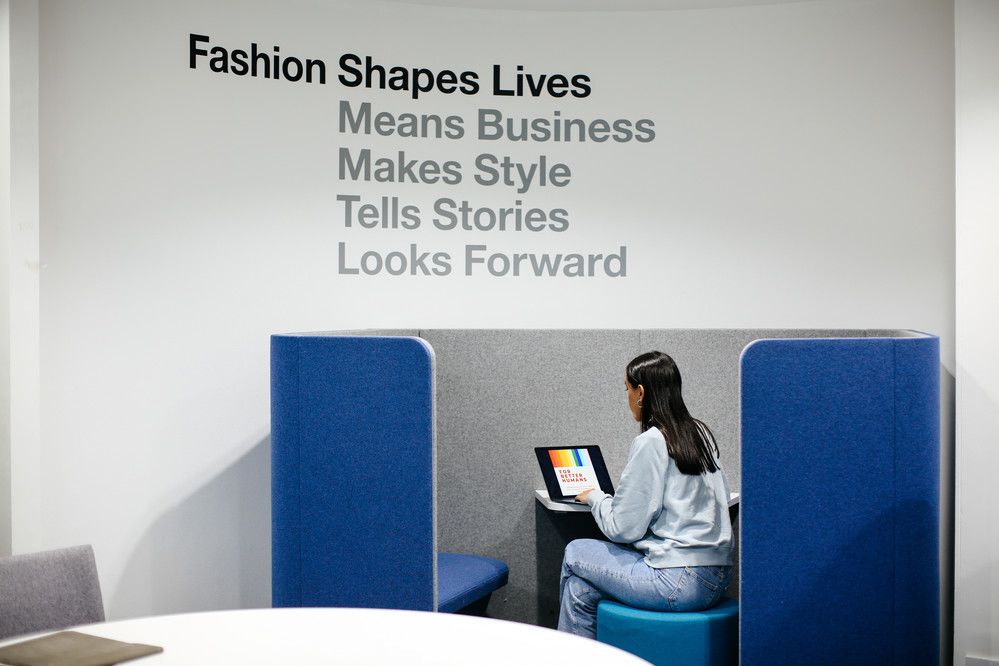All you need to know about BSc (Hons) Psychology of Fashion

- Written byM.Fields
- Published date 07 March 2022

Ahead of National Science Week 2022, we spoke with Dr Mason Silveira, course leader of BSc (Hons) Psychology of Fashion at LCF. Dr Silveira has provided a detailed look at what prospective students can expect through the duration of the course.
Who does the BSc (Hons) Psychology of Fashion course cater to?
If you are interested in understanding how people use fashion as a means of self-expression, and how fashion can be used as a tool to enhance well-being, then you will really enjoy this course. We are a British Psychological Society accredited course that teaches the fundamentals of psychology but applies it to the context of fashion and fashion business. There are many issues in the fashion industry that need to be addressed, and we believe that studying human behaviour as it relates to fashion will allow students to go forward and affect positive change in the industry.
What are the goals that you have for students when they join the course?
Fashion is something that is so ubiquitous in our daily lives, that we often take for granted the potential it has to affect our sense of self, our emotions, and even our cognitions. The fashion industry itself is so large, and we know that there are many issues within it that need fixing, including issues around sustainability as well as a general lack of inclusivity. As such, we aim to equip our students with the knowledge and skills so that they can make informed decisions that will have positive effects on the industry. My hope is that students who join the course have a keen interest in understanding why humans behave the way they do, particularly as it relates to fashion and the fashion industry, and that they want to use this understanding to make fashion a better place for everyone involved.
Which modules can students expect to study?
Our course touches on many domains of psychology, and you will be bound to find one that particularly resonates with you.
In Year 1, you will learn the fundamentals of psychology, and how it can be applied to current topics in the fashion industry. For example, you will look at how body image and self-esteem relate to the modelling industry and how we compare ourselves to fashion media, but we also touch on consumer behaviour and related topics like sensory marketing. You will also learn about ethics in psychology and how to conduct research, which will culminate in a project where you work with a team to conduct a psychological study that aims to address some questions about the industry (for example, what attributes are associated with those who shop online for fast fashion?).
In Year 2, you will learn about cognitive psychology and behavioural neuroscience, and how it relates to creativity and innovation in the fashion industry. We have other units that look at how fashion can be used to enhance well-being and a consumer psychology unit where we try to understand why people buy certain goods and services. In the second year, you will also have a chance to work with a partner in industry to conduct psychological research for them.
In your final year, you will learn about business psychology and its application to the fashion industry, and you will also carry out a dissertation project where you can run a study on a psychological phenomenon of your choice. For example, some previous research projects have looked at whether clothing colour can affect the perceived competency of political candidates, another looked at how blockchain technology might be used to facilitate trust on reselling sites like Depop, and another one investigated what features of Instagram influencers make them particularly influential. The possibilities are endless.
What career options are open to prospective students after graduating?
The course teaches you critical thinking skills that you can apply to various careers in the fashion industry and beyond. You will learn how to question and interpret data so that you can make informed decisions that are based on sound research. You will also develop skills in scientific and academic writing and will develop a nuanced understanding of human behaviour.
As such students can go on to become consumer behaviour experts, sustainability officers, or research and development scientists. Via the course, you will also become fluent in statistics and statistical methods, and so graduates can go on to become data scientists. If you are interested in academia, the course sets you up with the tools to pursue advanced study in psychology generally, but also fashion psychology specifically.
Can you explain some of the goals you have set for the course as its leader?
I am amazed at the different ways students find to apply psychological principles to current topics in the fashion industry. The field of psychology is so vast that it is interesting to see what students resonate with. For example, a few weeks ago in a seminar, we were discussing the rise of digital fashion, and this then led to a conversation about whether digital fashion affects people the same way as normal fashion does, and what implications this may have on consumers in terms of their identity formation, but also how it might have unique impacts on their consumer behaviour.
There are also many opportunities on the course where students can develop prototypes or proposals that address fashion industry issues, and I am amazed at what students come up with on the basis of carrying out scientific research. Overall, it is great to be in an environment where people’s passion for psychology and fashion can combine – the results are really inspiring.
- More about BSc (Hons) Psychology of Fashion
- Explore LCF undergraduate and postgraduate courses
- What’s on at LCF: open days and events
- More LCF Stories